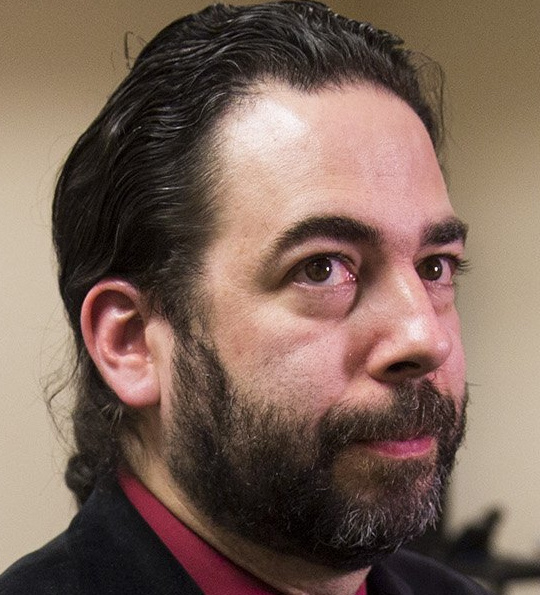Opponents of ballot initiatives to legalize recreational marijuana and tax the state’s highest earners to help fund public schools have submitted requests for recounts.
Petitions seeking recounts were turned in Wednesday afternoon to the Secretary of State’s Office, hours before the 5 p.m. deadline. State officials must verify that at least 100 signatures on each petition came from registered voters who cast ballots in the Nov. 8 election before a recount is scheduled.
Both Question 1, which would legalize marijuana, and Question 2, which would add a 3 percent tax surcharge on individual income over $200,000, were narrowly approved. The two statewide recounts combined will cost taxpayers more than $500,000, the Secretary of State’s Office said.
The marijuana question passed by 4,073 votes, 381,692-377,619, less than 1 percent, according to unofficial results from the Secretary of State’s Office.
“I think it’s due diligence (to conduct a recount) because it was such a tight margin,” said Hillary Lister of Maine Matters Vote No, a group that opposed Question 1. “Any initiative that is this close should have a recount.”
Alysia Melnick of the Yes on 1 campaign said the recount is unlikely to change the outcome, given the margin and the accuracy of the state’s voting machines.
“With thousands of votes in the margin, the recount is not going to be successful,” she said, “and it’s unfortunate the opposition would go against the will of the people and use taxpayer dollars for a recount that will not change the outcome.”
Paul McCarrier, president of Legalize Maine, also said there is no way a recount will change the outcome. “I am disappointed that the ‘No’ camp would waste hundreds of thousands of taxpayer dollars when they have clearly lost,” he said.
Unless the recount reveals errors that change the outcome, the referendum proposal will make it legal for adults at least 21 years old to buy and possess up to 2.5 ounces of marijuana. It also will allow retail stores and social clubs in communities that allow them, and put a 10 percent sales tax on marijuana.
Marijuana use and possession would become legal by Jan. 7. However, it could take a year for the state to set up licensing rules to allow the first marijuana stores and social clubs to open for business.
Maine was one of four states that voted last week to legalize recreational marijuana for adults 21 and older. Eight states and Washington, D.C., now have voted to legalize a recreational cannabis market.
The proposal to impose a tax surcharge on high earners appears to have passed by a margin of 9,536 votes, just over 1 percent. An unofficial tally from the Secretary of State’s Office shows 383,449 votes in favor of Question 2 and 373,913 opposed.
David Clough, Maine state director of the National Federation of Independent Business, which opposed Question 2 and gathered the recount signatures, said that even though the margin is more than 9,500 votes, no one knows what the odds are that a statewide recount could change the result.
“Errors can happen inadvertently. If there were mistakes made, we need to find out about them,” Clough said.
Question 2, which would add a 3 percent surcharge on individual taxable income above $200,000, would raise an estimated $123.8 million in 2017. That revenue would go into a designated fund to be used to meet the state’s requirement to provide 55 percent of school funding if the state’s General Fund appropriation falls short. Any money from the fund must be used for “direct support,” such as instructors’ salaries, not for administration.
It would be highly unusual for a recount to change the outcome of a statewide election.
In 2010, a statewide recount confirmed voters’ approval of the Oxford County casino initiative, which initially appeared to pass by just over 4,000 votes. After the recount, the margin of victory grew by 122 votes.
The state will pay the entire cost of the 2016 referendum recounts because the margin of difference was less than 1.5 percentage points for both questions. When the margin is greater than 1.5 points, the party seeking the recount must pay between $500 and $5,000.
Secretary of State Matt Dunlap estimated that the marijuana referendum recount would cost his office and Maine State Police about $500,000. The second recount wouldn’t double that amount because transportation costs for each recount could be shared. State troopers would travel to each of the state’s 503 municipalities to pick up the sealed ballot boxes and then deliver them to the Secretary of State’s Office for a manual recount.
A statewide recount could take about four weeks.
The secretary of state also has received recount requests for two close legislative races, one in House District 78 in Winslow and Benton and the other in House District 121 in the Alton area. A request for a recount in House District 74 in the Livermore Falls area was withdrawn.
Copy the Story Link
Send questions/comments to the editors.




Success. Please wait for the page to reload. If the page does not reload within 5 seconds, please refresh the page.
Enter your email and password to access comments.
Hi, to comment on stories you must . This profile is in addition to your subscription and website login.
Already have a commenting profile? .
Invalid username/password.
Please check your email to confirm and complete your registration.
Only subscribers are eligible to post comments. Please subscribe or login first for digital access. Here’s why.
Use the form below to reset your password. When you've submitted your account email, we will send an email with a reset code.